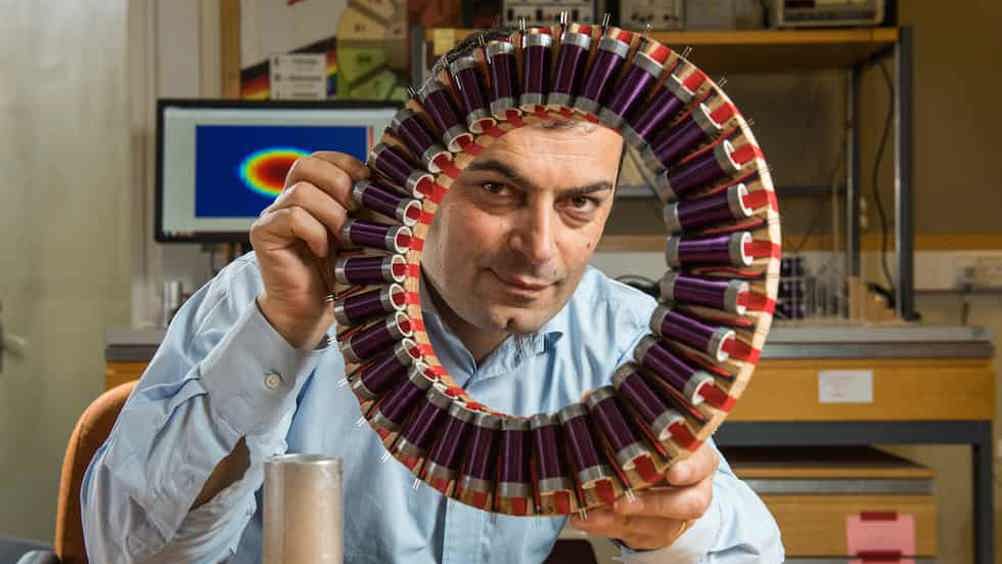Induction tomography project could boost competitiveness of UK steel industry
A new method of assessing a key stage of steel production is set to boost the competitiveness of the UK and EU steel industries.

This is the aim of Dr Manuch Soleimani from Bath University’s department of electronic and electrical engineering who is leading the three-year Shell-Thick project to develop an induction tomography system for assessing the steel solidification process.
It aims to significantly improve the continuous casting process of steel by providing a real-time, non-destructive and reliable method of measuring the molten steel to detect any defects or fails as it solidifies and becomes a market product.
Induction tomography is an emerging non-invasive imaging technique already used in a number of applications, including medical diagnostics, geophysical exploration and civil engineering.
Soleimani, an associate professor at the university, told The Engineer: “Magnetic induction tomography attempts to image the passive electromagnetic properties of an object by measuring the mutual inductances between pairs of coils placed around its periphery.
“Measurements are acquired by passing an alternating current through excitation coils, producing a primary magnetic field.
“This magnetic field interacts with conductive and permeable objects in the medium to produce eddy currents, which, in turn, produce a secondary magnetic field, which is measured by sensing coils.
Register now to continue reading
Thanks for visiting The Engineer. You’ve now reached your monthly limit of news stories. Register for free to unlock unlimited access to all of our news coverage, as well as premium content including opinion, in-depth features and special reports.
Benefits of registering
-
In-depth insights and coverage of key emerging trends
-
Unrestricted access to special reports throughout the year
-
Daily technology news delivered straight to your inbox










Water Sector Talent Exodus Could Cripple The Sector
Maybe if things are essential for the running of a country and we want to pay a fair price we should be running these utilities on a not for profit...